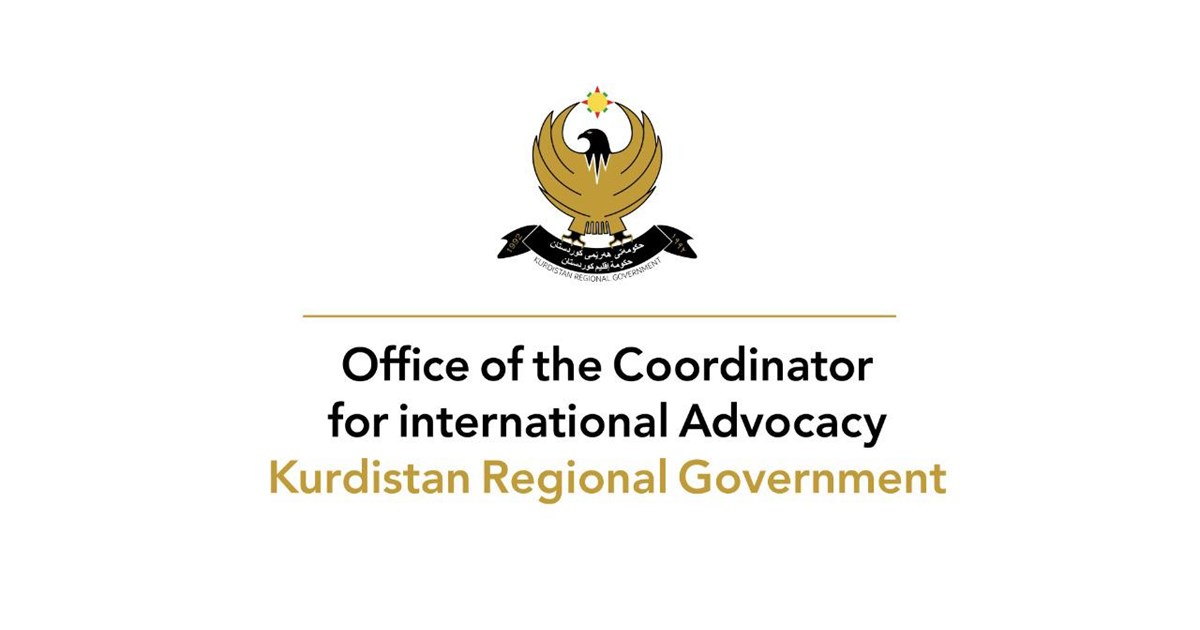KRG Heeds the Findings of the State Department's Report on Human Trafficking

Erbil, Kurdistan Region, Iraq (GOV.KRD) - On July 19, 2022, the U.S. State Department released its annual report on the issue of human trafficking. There is a section in the report dedicated to evaluate the progress made in Iraq and the Kurdistan Region, and according to the report, the region remains persistent to prevent human trafficking.
The KRG Office of the Coordinator for International Advocacy (OCIA) has an open dialogue with the US Consulate General in Erbil, which encompasses a robust information-sharing process prior to the release of the annual reports of the US State Department. As far as the report in question is concerned, OCIA submitted the inputs on behalf of the government in January 2022. The US State Department report partly reflects the provided information to a good extent.
Through coordinating with the Directorate of Combating Organized Crimes and the relevant institutions, OCIA circulated official data to the US Consulate General which indicated that 6 suspects were convicted for the involvement in trafficking; 77 victims were identified, including 34 labor-trafficking victims; and victims were identified through management offices at refugee and IDP camps, hotlines, foreign embassies and the public and then referred to the appropriate law enforcement agency, including the specialized anti-trafficking police in the Kurdistan Region. Information about arrest campaigns in places that are vulnerable to sex-trafficking, mechanisms of identifying victims in refugee and IDP camps, and the legislative framework, among others, were also submitted by OCIA.
Several laws have been enacted in the Kurdistan Region to combat this detested practice. Articles 393, 394, and 395 from the Iraqi Penal Code No 111 (1969) impose severe penalties on those who commit sexual offenses and misconduct against children and women. Additionally, the Prostitution Law No 8 (1988) 3 has banned all forms of illicit sex, and those who trade in victims will be severely punished.
At the same time, in the Law No 6 (2018) of the Kurdistan Parliament, the trafficking of children is enshrined in the same legal framework and heavy punitive measures are set accordingly. In the case of foreign workers, Regulation No 2 (2015) of the Ministry of Labor and Social Affairs is implemented. The prosecutions in 2021, as asserted by the US State Department report, were based on the anti-trafficking law. Although the law has been thoroughly legislated, the KRG Ministry of Interior proposed compelling amendments to it, including the devoting of a defense fund for the victims, drawing clear distinctions between the victims and traffickers, and the establishment of a special court in each appellate jurisdiction.
Institutionally, the report underlined that the KRG changed the title of the Directorate to Combat Trafficking in Persons to the Directorate of Combating Organized Crimes, thus wielding a more compelling and organized effort to combat human-trafficking. In 2021, the KRG approved two new units for the newly independent administrations in Soran and Zakho, adding to the six units which operated under the newly-created DCOC
The regional government provides assistance to the victims, including hiring attorneys, covering expenses, resolving their issues and bringing them back into the community. At the same time, the rights of witnesses are protected, and their names will not be disclosed during - and after - the legal proceedings and will remain under the protection of the government until their safety is guaranteed.
Also, the prohibition of child recruitment is in accordance with the principles of military prosecutions and the Law of Military Punishment. KRG abhors recruiting children and reiterates that this practice has no space in the Kurdistan Region.
